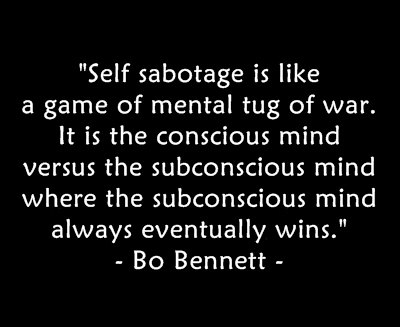The radio show was very eye-opening last night. I wish we could have gotten to more callers. If you’ve had a chance to call in, I’d appreciate it if you gave others a chance. Some of you guys are so good at calling right at the beginning of the show! Must have speed dial down pat!
So Arleen’s birthday present from me, that big inflatable pool slide, ripped at a seam and is totally worthless. I returned it, and the replacement just came in last night. I DON’T look forward to blowing that thing up, though. It’s supposed to come with a 12-volt pump, but the last one didn’t. Apparently they ship it separately, and I’m definitely waiting for it to get its ass over here first. My lungs aren’t what they used to be.
I don’t know why I shared that boring little tidbit. Maybe it’s my way of showing you have menial my life is! Typical day: Get up and make my bed, wash my face and brush my teeth, take my medicine and vitamins, turn on the TV for the white noise, brush Bella’s teeth and give her a treat, give the cats (and of course the dogs) a kitty treat, freshen up Bella’s food and water, make my coffee, pick up Kristina’s dog, Gidget, for a play date, sit outside while to dogs play and work on my blog and other CE related things, watch about 15 minutes of news that only serves to piss me off, water the plants, clean the kitty litter and freshen the cat food and water, work on CE related stuff again, call one of my sisters to check in with them, shop for groceries for dinner, take out the trash, do a wash, get on the treadmill for around 80 minutes while watching shows like Forensic Files, Life and Death in the ER, Desperate Landscapes, Rehab Addict, etc., take a bath (which is when I have my conversations with Erik,) transcribe sessions with Robert or Kim, play with Easton and Arleen, get Rune’s shirts from the cleaner, take Gidget back home, watch more TV, answer emails and Facebook PMs (which takes around 3-4 hours throughout the day,) fix dinner or, if lucky, get someone else to do it, clean the dishes (and chastise Lukas and Annika until they help,) pour a glass of wine and watch whatever we’re bingeing on on Netflix and finally, brush my teeth, wash my face, take my P.M. medicine, crawl into bed to hopefully dream about Erik. Same thing all over again the next day.
Enjoy today’s post on self-sabotage!
Me: Hey, Kim. Are you ready for the last session of the day?
Kim: Ready!
Me: Okay. Hi, Erik! What are you up to?
Erik: Hi, Mom. I’m up to no good.
Kim laughs.
Me: Of course! What is he wearing today?
Kim: He changed. He had the kilt on before.
Me: Oh, that’s right.
Kim: He’s chilling. He’s got on jeans and a white t-shirt. No holes in his jeans.
Me: Wow, good.
Kim: He smells good. He just smells like manly cologne.
Me: Oh, awesome. It’s better than the smells he usually give people as pranks!
Kim (chuckling): No hat either. He’s well groomed.
Me: Nice! Mama taught you well!
Erik: I even tied my own shoes.
Kim laughs hard.
Me: Oh, you don’t have to have Velcro shoes anymore? That’s awesome. That’s a step up!
I love teasing my baby.
Kim (laughing): He’s killing me! He’s just being silly today. Little boy silly.
Me: Aw, that’s my little boy!
I miss him so much.
Me: All right, so let’s choose between two things: the root of self-sabotage or how to guide rather than control. You know, humans are such control freaks, but either one of those is fine. I like to give you choices, Erik, because you might think, “Oh, I’m into this particular topic today so yeah, I’ll give it a go.”
Erik: I like both of them. Self-sabotage. There’s a lot that goes into that. Everybody does it. In one way or another, everybody does it, and a lot of it comes from anxiety and nervous habits. This is how humans channel disappointment through expectation. People will place expectations on themselves, and they’re afraid they’re not meeting them, not connecting to themselves. That’s when you start to see self-sabotage happen. “I’m going to go home and stuff my face.” That’s not good for you! Or a lot of people bite their nails. I even consider that a form of self-sabotage, and it comes from disappointment from unmet expectation. I hate that booger, expectation.
Me: I know. My husband says, “Hey, you want to be happy? Lower your expectations.” And that’s true. So make your expectations reasonable.
Erik: It really is true.
Kim: He’s making my ear ring really loud.
Erik: Expectations are an illusion and can alter what you experience and how you’ll experience it. So, then, when you’re not meeting expectations or something outside of you isn’t—something outside of you is supposed to go a certain way and it doesn’t—then it’s this really funky ricochet effect. Let’s say you’re going to a soccer game, and you’re expecting it to be amazing, but you get there, and it’s not going your way. It’s falling apart. That energy from those unfair expectations ricochet back to you. Humans channel that through self-sabotage whether it’s picking their fingers or defaulting to some habit. A lot of habits come from that whole chain of expectations and disappointment from unmet ones. So expectations can lead to unhealthy habits.
Me: Yeah, so “The Texans lose yet again,” so a fan goes out and gets drunk. Of course if they win, they probably get drunk, too!
Erik: That’s a great example, Mom, but if they lose and somebody gets drunk, they carry that funk. If they get drunk for a celebration, it’s more of a high. Their energy is up.
Me: The drunk funk.
Kim laughs.
Kim: I like that.
Erik: The self-sabotage in it is, if they go out and get drunk because they’re happy and they won, they go out and get drunk. If they go out and get drunk because their team lost, believe it or not, there’s a sense of blame and self-guilt that they carry. “Oh, my team lost. That just sucks.”
Me: Or that they picked the wrong one to root for.
Erik: Even if it’s a relationship and that relationship doesn’t go as you expected or you were being misled, you begin to blame yourself, and you carry that funk. That’s self-sabotage. You begin to go, “Well why did I think that way anyway about us.” So you start that whole thought process that’s self-degrading.
Me: Well, why do unmet expectations create self-sabotage?
Erik: It’s a control thing. People need an outlet to channel that funk, that negative energy, and often, people default to the self-sabotage habit out of the need for control. It’s a default mechanism. They had expectations that weren’t met, and that makes them feel out of control. So they channel that energy back through them, and those self-sabotage habits make them feel like they have control.
Me: Like you’re controlling your nails, or you’re controlling your state of mind by drinking, or you’re controlling [your pain] by cutting yourself. There are so many ways to self-sabotage. Or you can control by over-eating.
Erik: Yeah, or even by not eating. It all boils down to a control factor. It’s just how people channel it, Mom. It’s that need for control.
Me: Well, why do humans need to control so much? You spirits don’t feel like that, do you? You don’t have the need to control things, do you?
Erik: Hell, no!
Me: I guess you can easily control things anyway because thought creates reality. You can create anything for yourself, any situation, any possession, anything. Lucky you.
Kim: He’s getting on his soapbox.
Erik: I’m not stereotyping, but think about hippies. All they care about is love. They don’t care about control. Why is that?
Me: Because they’re on dope.
Erik: Because they’re more spiritual.
Me: It probably helps, a little Ayahuasca.
Kim (chuckling): Probably!
Me: Relinquish control!
Erik: Those people are more spiritual, and the more spiritual you are, the less need for control you have because you know that the need for control is a trap. It makes you feel trapped. If you don’t need control, there’s a sense of freedom in that. Here, we understand things much more differently than humans. We understand that everything is all at once and everything is one. Also, we can manifest anything we want to, and that’s kind of cool, but we don’t do it out of a need for power. That’s ego, and we don’t have ego. It’s part of the human experience and the battle with ego—the need for control based on a lack of understanding. If you have a connection to Higher Self and more of an understanding of the whole world around you, you’ll realize that having control is a fucking illusion because even if you do self-sabotaging things, you still don’t really have control. You can be deliberate in your actions, but everything is predetermined. Everything exists all at once, all together, all at the same time. So to say that anything is controlling over anything is not true. It’s an illusion that creates such a divide.
Me: It’s so ironic how letting go of control can be so scary yet so freeing. It’s like a toddler having a pacifier. They don’t want it to go, but then they lose it and all of a sudden they’re free. They don’t have to worry about, “Oh my god. Do I have my binky with me or not?” It’s that sort of thing.
Erik: Yeah.
Me: We’re just a bunch of toddlers! Whining toddlers, us humans!
Kim laughs.
Erik: The interview we did a while back with Bigfoot? They think you are!
Me: I know they must! Boy, people loved those interviews. You guys, if you haven’t seen the Bigfoot interviews, you need to! Amazing.
Kim: They were very fascinating.
Me: Yeah.
Erik: It all comes down to ego, Mom. The ego drives you to the need for control, and the need for control drives you to self-sabotage based on self-blame and guilt. All of that is wrapped up in ego.
Kim: He put a top hat on for some reason.
Kim and I laugh.
Erik: So if I could advise you to do anything, it would be to step into love and outside of ego.
Me: How do you step out of your ego? How do you diminish your ego?
(Pause)
Me: Or how do you let go of control?
Erik: Well, if you know how to let go of ego, you won’t have to worry about letting go of control. It’s automatic.
Me: Okay, so let’s tackle that.
Erik: Again, letting go of ego is all about surrendering and accepting everything about you because ego says, “I need to understand that person. I need to understand why they did that,” and ego says, “I have to figure this out for my own personal gain,” or ego says, “I need; I want.” Love says, “I just accept what is.” Now sure, humans have needs. Humans have wants, but there’s a fine line between how it affects others and if you’re doing it to massage your ego. Are you doing something to boost your ego? That’s when you know you’re ego-driven, but if you have a need and you fill that need out of love because you want to share or if it’s out of genuine compassion and authenticity, then it’s not to massage your ego. Basically, Mom, just accept what is. There are so many changes that come in—letting go of the need to judge people and the need to –
Me: That’s a lot of work!
Erik: It’s really cool when you can relate to someone, but accept them even if you don’t have anything in common with them. There’s still a natural, resonating love between you and any other human, but it’s up to you to connect to that.
Me: Wow, that’s really powerful. I like that.
Erik (making a muscle): That’s what they tell me all the time.
Kim and I chuckle. What a goofball.
Me: So, it’s so ironic that letting go is so hard for us because it seems like that involves not doing anything and not thinking anything. It’s inaction whereas control is action. It takes effort. Why do we have such trouble letting go and fully accept?
Erik: Attachment. People develop attachments to emotions, to ideas, to people, to situations. Those attachments are an illusion. They’re something you’ve developed yourself, so that’s why it’s so hard to let go. Even if you’ve lost your great aunt, Susie, and it’s so hard to move on without her, that’s because you’re attached to the role she’s played in your life. Now it’s changed. Things are different, and you have to adapt. You have to keep your eyes wide open and be aware of the attachments you’re making, attachments being rooted in the need for control. “I’m attached to my child being like this, and now they’re like this instead, and I can’t believe it.” People have a hard time with that change because of attachments.
Me: So maybe they have to examine their attachments?
Erik: Yes, and it’s more like a neutral state of being.
Kim: This is trippy for me because there are two opposite things that he wants to say. Hopefully we can all make sense of this.
Erik: Being as neutral as you can is important, but that doesn’t mean that you can’t have a personality and you can’t have characteristics that define you. Just be neutral in wanting to control and wanting to judge and wanting to understand. Just accept. That’s what people have a hard time with.
Me: Is there any exercise that you can have people start today in order to practice complete acceptance?
Kim: He’s being really nonchalant.
Erik: Yeah, when things don’t go your way, are different or aren’t what you expected, instead of defaulting to your emotions and reacting, process and feel it first. Process the way you feel.
Kim: He’s walking away as he’s talking. He’s pacing, so it’s hard to hear him.
Me: Yeah, he’s a pacer! That boy can pace.
Kim: He does. When he really wants to be solid in his answer, he’ll throw a finger up, and then he’ll pace for a minute.
Erik: Accept what just happened even if you don’t like it, even if you don’t understand it and it doesn’t feel right. Process and listen to how it makes you feel before you react emotionally. People are such emotional beings. They default to and react with emotions before anything, so just take a little time first. That’s the best advice I can give you for being aware of the attachments you have.
Me: Well, you’re saying to feel, but emotions are feelings.
Erik: They are, but people react immediately based on their feelings without processing them first. Take time to feel and accept. Just accept because if you do, you’re at a better state and a better place to learn what’s going on and to be able to see your expectations.
Me: Okay. Well, last thing: Give us a mantra we can use when we feel like we’re out of control and will self-sabotage.
Erik: I accept. I accept. I accept.
Me: All right, well thank you, Erik. Thank you, Kim!
Kim: You’re welcome.
Erik: You’re welcome, Mama!
Me: Come visit me.
Erik: Yes, ma’am!
Me: For rizzle.
Erik: You got it!

Have a wonderful weekend!



